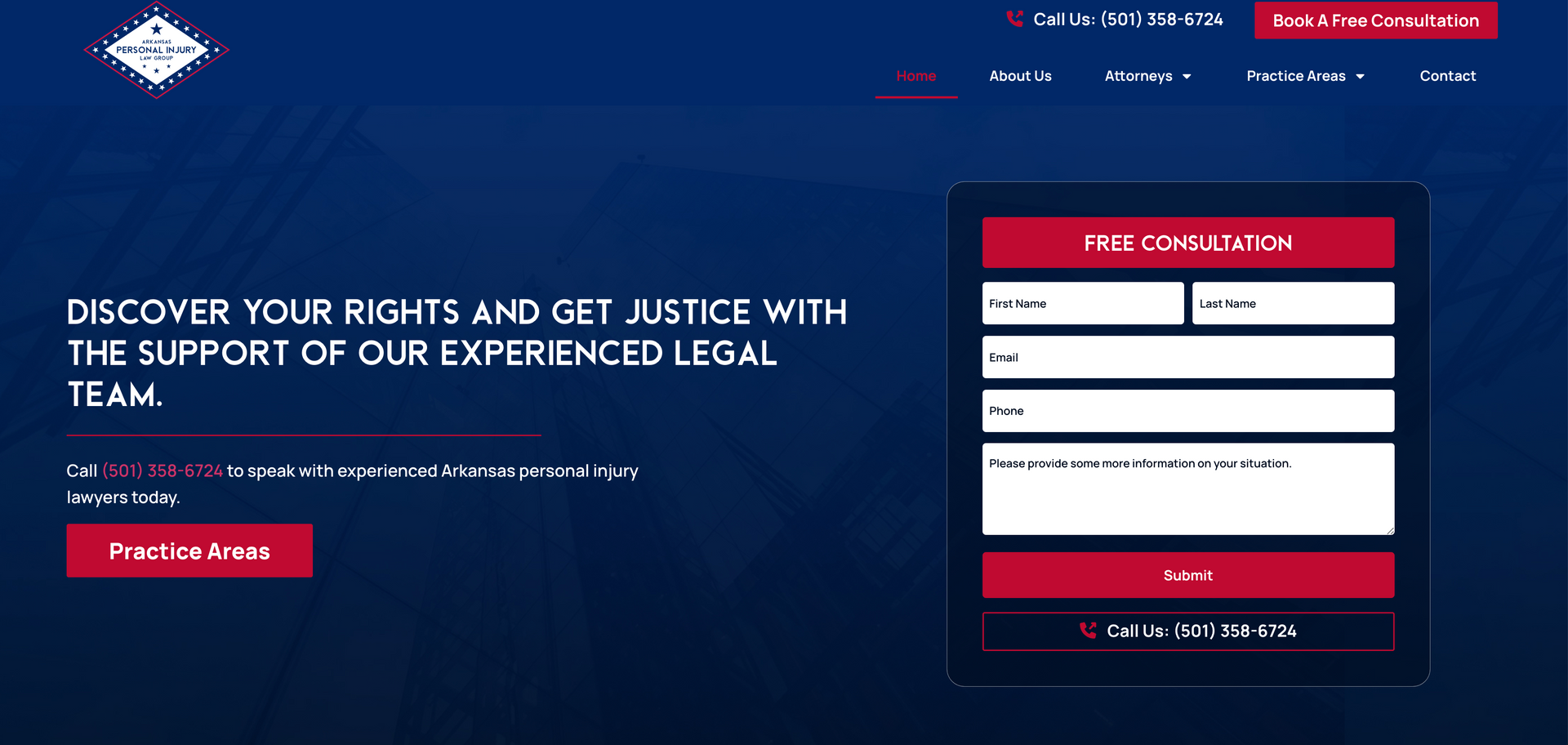Law Firm SEO Blueprint: From Keywords to Conversions
The Ultimate Guide to Law Firm SEO: Strategies for Success
In the digital age, having an online presence is crucial for any business, including law firms. One of the most effective ways to improve your law firm's visibility online is through Search Engine Optimization (SEO). Law firm SEO is a specialized strategy to improve your website’s rankings in search engine results pages (SERPs), making it easier for potential clients to find you. This comprehensive guide will cover everything you need to know about law firm SEO, from keyword research to content creation, technical SEO, and more.
Understanding Law Firm SEO
Law firm SEO involves optimizing your website to rank higher in search engines like Google, Bing, and Yahoo. Unlike general SEO, law firm SEO requires a nuanced approach tailored to the legal industry's specific needs. This includes understanding the legal terminology, targeting the right audience, and adhering to ethical guidelines.
Keyword Research
Keyword research is the foundation of any successful SEO strategy. For law firms, this means identifying the terms potential clients are using to search for legal services. Here’s how to conduct effective keyword research:
- Identify Your Practice Areas: List out all the legal services you offer, such as personal injury, family law, criminal defense, etc.
- Use Keyword Tools: Tools like Google Keyword Planner, SEMrush, and Ahrefs can help you find relevant keywords. Look for terms with high search volume and low competition.
- Focus on Long-Tail Keywords: These are longer and more specific phrases that potential clients might use, like “personal injury lawyer in [city]” or “how to file for divorce in [state].”
On-Page SEO
On-page SEO refers to the elements on your website that you can optimize to improve your rankings. Here are the key aspects to focus on:
- Title Tags and Meta Descriptions: Ensure each page has a unique title tag and meta description that includes your target keywords. Keep the title tag under 60 characters and the meta description under 160 characters.
- Header Tags: Use H1, H2, and H3 tags to structure your content. Your primary keyword should be in the H1 tag.
- Content Optimization: Your content should be informative, engaging, and relevant to your audience. Use your target keywords naturally throughout the content, but avoid keyword stuffing.
- Internal Linking: Link to other relevant pages on your website to keep visitors engaged and improve your site’s navigation.
- URL Structure: Keep URLs short and include your target keywords. For example, “www.yourlawfirm.com/personal-injury-lawyer” is better than “www.yourlawfirm.com/page1.”
Content Marketing
High-quality content is essential for law firm SEO. It not only helps with keyword rankings but also establishes your authority and expertise. Here’s how to create effective content:
- Blog Posts: Regularly publish blog posts on topics relevant to your practice areas. For example, a family law firm could write about “Top 10 Tips for Child Custody Battles.”
- Case Studies: Share detailed case studies that showcase your successes. This helps build trust with potential clients.
- FAQs: Create a comprehensive FAQ section addressing common legal questions.
- Guides and Ebooks: Offer downloadable guides and ebooks on legal topics. This can also help with lead generation.
- Video Content: Videos can be highly engaging. Consider creating video content such as client testimonials, explainer videos, and legal advice.
Local SEO
Local SEO is critical for law firms since most clients search for legal services within their geographical area. Here’s how to optimize for local SEO:
- Google My Business (GMB): Claim and optimize your GMB listing. Ensure all information is accurate and includes relevant keywords.
- Local Keywords: Incorporate local keywords into your website content, such as “New York criminal defense lawyer.”
- NAP Consistency: Ensure your Name, Address, and Phone number (NAP) are consistent across all online directories.
- Local Citations: Get your law firm listed in local directories and legal directories like Avvo, FindLaw, and Justia.
- Reviews and Ratings: Encourage satisfied clients to leave positive reviews on your GMB and other review sites.
Technical SEO
Technical SEO involves optimizing the backend of your website to improve its performance and user experience. Key aspects include:
- Site Speed: Ensure your website loads quickly. Use tools like Google PageSpeed Insights to identify and fix issues.
- Mobile-Friendliness: With more users searching on mobile devices, your website must be mobile-friendly. Use responsive design to ensure your site looks good on all devices.
- SSL Certificate: An SSL certificate ensures your website is secure, which is a ranking factor for Google.
- XML Sitemap: Create and submit an XML sitemap to search engines to help them crawl your site more efficiently.
- Robots.txt: Use a robots.txt file to control which pages search engines should crawl.
Link Building
Building high-quality backlinks is a crucial part of any SEO strategy. Here’s how to acquire valuable backlinks for your law firm website:
- Guest Blogging: Write guest posts for reputable legal blogs and include a link back to your site.
- Press Releases: Issue press releases for significant events or case wins, and ensure they include links to your website.
- Legal Directories: Get listed in reputable legal directories that provide backlinks to your site.
- Social Media: Share your content on social media platforms to increase its reach and chances of being linked to by others.
- Partnerships: Collaborate with other businesses or organizations for mutual linking opportunities.
Analytics and Monitoring
Regularly monitoring your SEO efforts is essential to understand what’s working and where improvements are needed. Use these tools and strategies:
- Google Analytics: Track website traffic, user behavior, and conversion rates.
- Google Search Console: Monitor your site’s performance in search results and identify any issues.
- SEO Tools: Use tools like Ahrefs, SEMrush, and Moz to track keyword rankings, backlinks, and overall site health.
- Regular Audits: Conduct regular SEO audits to ensure your website remains optimized and identify new opportunities for improvement.
Ethical Considerations
Law firm SEO must adhere to ethical guidelines to avoid penalties and maintain your firm’s reputation. Keep these considerations in mind:
- Avoid Black Hat SEO: Techniques like keyword stuffing, cloaking, and buying links can lead to severe penalties from search engines.
- Transparency: Be honest and transparent in your content and marketing efforts.
- Client Confidentiality: Ensure any client information shared online respects confidentiality agreements and privacy laws.
- Compliance: Follow all legal and ethical guidelines set by your state’s bar association regarding advertising and online presence.
Conclusion
Law firm SEO is a multifaceted and ongoing process that requires a strategic approach and consistent effort. By focusing on keyword research, on-page SEO, content marketing, local SEO, technical SEO, link building, and ethical practices, your law firm can improve its online visibility and attract more clients. Regular monitoring and adaptation to SEO trends will ensure long-term success. For expert assistance in implementing a comprehensive SEO strategy for your law firm, contact Scale and Sword Advertising today.
By following these detailed steps and maintaining a commitment to quality and ethical practices, your law firm can achieve higher search engine rankings and grow its client base through effective SEO.
Let’s talk about your project
Fill in the form or call to set up a meeting at 302 285 9806






